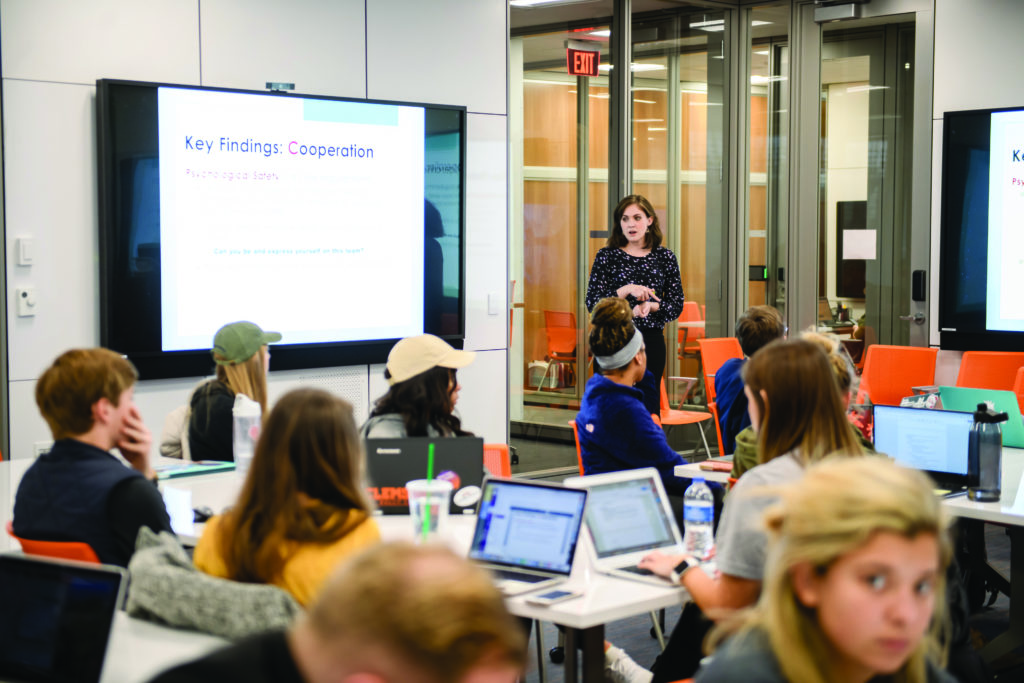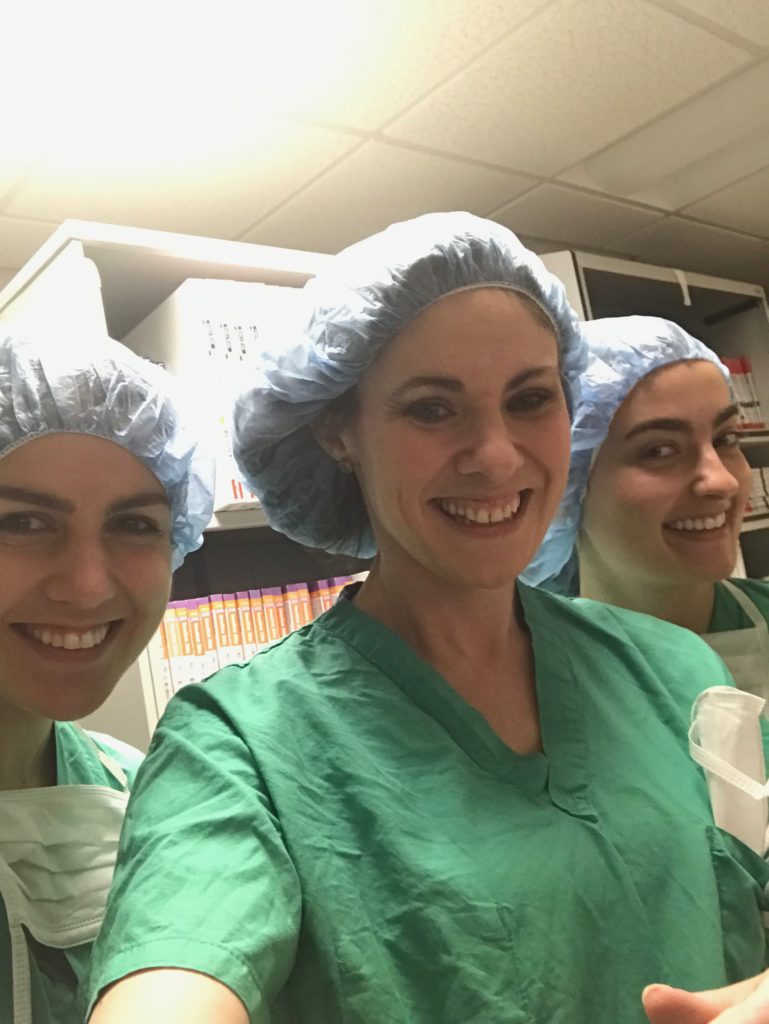First Person
Careers Up Close: Marissa Shuffler on the Principles of Teamwork

Marissa Shuffler, a professor of industrial-organizational psychology at Clemson University, researches how teams work together in trying circumstances.
Marissa Shuffler is an associate professor of industrial-organizational psychology at Clemson University. She works with teams across the fields of health care, space exploration, and the military to help people work together more effectively in high-stress contexts.
- Current role: Associate professor of industrial-organizational psychology at Clemson University, 2013–present
- Previously: Graduate research associate at the Institute for Simulation & Training, University of Central Florida, 2008–2013
- Terminal degree: PhD in industrial and organizational psychology, University of Central Florida, 2013
- Recognized as an APS Rising Star in 2017, National Science Foundation CAREER Award in 2017
Landing the job
During my PhD, my plan was to go back to a management consulting firm I had worked for previously. When I was starting my dissertation, I had a great conversation with my advisor that made me realize that an academic route would be a better fit because I could do a lot of applied research work with organizations while still having a lot of control over what I was researching and when I was doing it, in addition to working with students.
Working together
My dissertation research looked into the challenges of leading virtual teams, which has really come into the forefront in the past year. I’ve also been working very closely with a local health care system since 2014 on issues related to multi-team systems, leadership, and teamwork. Teams of teams have to work together to accomplish higher-order goals, especially in high-stress, complex, and dynamic organizations like those in health care, spaceflight, and the military. While I do some of my work in the lab, right now you are likely to find me in the field studying real teams and the issues they are facing.
Burning out in a pandemic
A major issue in health care is clinician burnout. I’m sure it’s not a surprise, but it’s just gotten worse over the past year, unfortunately. I mean, think about the many challenges we’ve all been trying to manage while working during a pandemic, but add onto that trying to save lives. Usually we tend to cope with stress and burnout at work through social support or disconnecting from work for a while. Unfortunately, working in a pandemic means that health care workers can’t always go home; they can’t always get that support from their loved ones because they’re worried about getting their family sick. Even now, a lot of them are still limiting their interactions with family and friends and relying more on coworkers for this social support.
I think there’s been increased recognition that we need to pay attention to burnout, and it’s not just about getting people to be individually more resilient or more mindful. It’s about providing a system of resources, a system of support, to help organizations manage that.
Jump right in
I like to let students jump in and get their feet wet with some of the nitty-gritty details of the applied research I do. My students don’t just go and read articles about working in health care settings; they’re actually in the health care setting and doing research—they’re working. Getting involved and being able to see some of the issues and challenges in person is a really important thing. It helps keep you connected—it helps you understand why you’re doing this and what the purpose of the research is.

From surgeons to the stars
For me, the number one thing is those “a-ha” moments and getting to see how our work is applied. On one of the best days I’ve ever had as a researcher, I spent my morning observing a brain surgery, and my afternoon talking with folks from NASA about the critical role of teamwork between the ground crew and the International Space Station. It was really fascinating to see how these two high-stress, high-demand contexts were so different but also alike in so many ways when it comes to being an effective team.
Researching under pressure
One of the main issues is trying to manage the balance of doing high-quality research in contexts where there are sometimes barriers and limitations to the way we might want to ideally design a study. We know good principles and practices from experimental design and data analysis, but it’s not always easy to get working professionals to fill out a very long survey. So if you only have 5 minutes, what can you do with that?
I also try to balance publishing in traditional academic journals with translating those findings so that they can be put into use. I don’t want to create research only for the sake of creating research that no one’s going to ever read. I want to put it into practice, and that takes time.
Principles of teamwork
When I teach classes on teamwork, the thing I tell them from Day 1 is the importance of role clarification. One of the most important things you can do is clarify the roles of your team members to make sure that you actually have a purpose, a reason that each person is on the team. Sometimes we end up with teamwork situations where you don’t actually need a team, and then you create all kinds of additional challenges since not everyone has a purpose.
Another principle that we’ve seen a lot of is just the need for psychological safety. This isn’t just a touchy-feely type thing. It’s about creating this environment where, if I speak up about an idea or concern, I won’t be penalized or laughed at. I think that applies to lots of different contexts. In health care, it’s a huge component of preventing medical errors, but even in low-stress environments, most people still need to feel psychologically safe in their work teams.
Advice for students
One of the things I cannot recommend enough would be internships, whether you are not completely sure if a career is the right fit or if you’re 100% sure of your future dream job. As an undergraduate, I was convinced I was going to be a clinical child psychologist up until the end of my junior year. Then I did an internship and I realized I was much more interested in understanding the dynamics behind how the psychologists, social workers, and administrators were working together in an alternative school. If I had not done that internship, I wouldn’t have realized that there was a better career path for me in I-O psychology.
Feedback on this article? Email [email protected] or scroll down to comment.





APS regularly opens certain online articles for discussion on our website. Effective February 2021, you must be a logged-in APS member to post comments. By posting a comment, you agree to our Community Guidelines and the display of your profile information, including your name and affiliation. Any opinions, findings, conclusions, or recommendations present in article comments are those of the writers and do not necessarily reflect the views of APS or the article’s author. For more information, please see our Community Guidelines.
Please login with your APS account to comment.